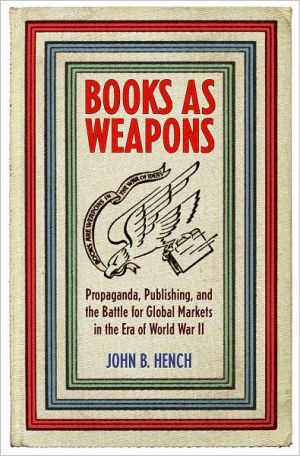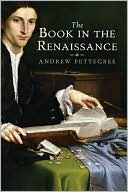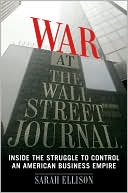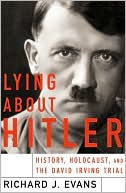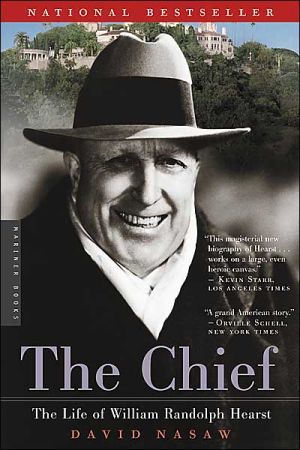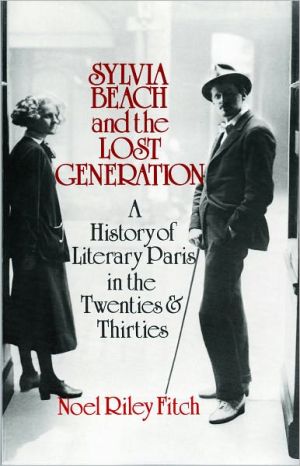Books as Weapons: Propaganda, Publishing, and the Battle for World Markets in the Era of World War II
Only weeks after the D-Day invasion of June 6, 1944, a surprising cargo-crates of books-joined the flood of troop reinforcements, weapons and ammunition, food, and medicine onto Normandy beaches. The books were destined for French bookshops, to be followed by millions more American books (in translation but also in English) ultimately distributed throughout Europe and the rest of the world. The British were doing similar work, which was uneasily coordinated with that of the Americans within...
Search in google:
Only weeks after the D-Day invasion of June 6, 1944, a surprising cargo-crates of books-joined the flood of troop reinforcements, weapons and ammunition, food, and medicine onto Normandy beaches. The books were destined for French bookshops, to be followed by millions more American books (in translation but also in English) ultimately distributed throughout Europe and the rest of the world. The British were doing similar work, which was uneasily coordinated with that of the Americans within the Psychological Warfare Division of General Eisenhower's Supreme Command. Books as Weapons tells the little-known story of the vital partnership between American book publishers and the U.S. government to put carefully selected recent books highlighting American history and values into the hands of civilians liberated from Axis forces. The government desired to use books to help "disintoxicate" the minds of these people from the Nazi and Japanese propaganda and censorship machines and to win their friendship. This objective dovetailed perfectly with U.S. publishers' ambitions to find new profits in international markets, which had been dominated by Britain, France, and Germany before their book trades were devastated by the war. Key figures on both the trade and government sides of the program considered books "the most enduring propaganda of all" and thus effective "weapons in the war of ideas," both during the war and afterward, when the Soviet Union flexed its military might and demonstrated its propaganda savvy. Seldom have books been charged with greater responsibility or imbued with more significance. John B. Hench leavens this fully international account of the programs with fascinatingvignettes set in the war rooms of Washington and London, publishers' offices throughout the world, and the jeeps in which information officers drove over bomb-rutted roads to bring the books to people who were hungering for them. Books as Weapons provides context for continuing debates about the relationship between government and private enterprise and the image of the United States abroad. Publishers Weekly Hench (The Press and the American Revolution and Printing) has written a specialized account of the role American publishers played in winning hearts and minds for the Allies during WWII. The war-induced reduction of book publishing in Britain, France, and China, and the descent of German publishing into Nazi ideology, led to an unparalleled opportunity for American publishers to expand markets and gain dominance in the worldwide book trade. More importantly, the creation of the Office of War Information made publishing an arm of the American propaganda effort with both military and political significance. Books by American and antifascist European and Asian authors were produced in a variety of special editions and were made readily available to servicemen and to the book-starved, freedom-deprived populations of occupied countries. After the war, the American publishing effort also assisted the re-education and rehabilitation of the defeated enemy nations. This subject is not the most exciting aspect of WWII, and the book at times is overly detailed, but Hench's account provides valuable information on the role cultural production played in the Allied victory. Photos. (June)
PrefaceAcknowledgmentsList of Abbreviations and AcronymsIntroduction: Books on the Normandy Beaches 1Part I CULTIVATING NEW MARKETS1 Modernizing U. S. Book Publishing 112 War Changes Everything---Even Books 19Part II BOOKS AS "WEAPONS IN THE WAR OF IDEAS"3 Publishers Organize for War and Plan for Peace 434 "Books are the Most Enduring Propaganda of All" 685 Seeking "an Inside Track to the World's Bookshelves" 826 "Everyone but the Janitor" Selected the Books 947 Books to Pacify and Reeducate the Enemy 1098 Making the "Nice Little Books" 131Part III U. S. CULTURAL POWER ABROAD9 Liberating Europe with Books 15110 The Rise and Fall of the United States International Book Association 17811 The Empire Strikes Back 19812 Books for Occupied Germany and Japan 225Epilogue: American Books Abroad after 1948 257Appendix A Overseas and Transatlantic Editions 269Appendix B Titles in the Bucherreihe Neue Welt Series 275Notes 277Bibliography 313Index 321
\ Publishers WeeklyHench (The Press and the American Revolution and Printing) has written a specialized account of the role American publishers played in winning hearts and minds for the Allies during WWII. The war-induced reduction of book publishing in Britain, France, and China, and the descent of German publishing into Nazi ideology, led to an unparalleled opportunity for American publishers to expand markets and gain dominance in the worldwide book trade. More importantly, the creation of the Office of War Information made publishing an arm of the American propaganda effort with both military and political significance. Books by American and antifascist European and Asian authors were produced in a variety of special editions and were made readily available to servicemen and to the book-starved, freedom-deprived populations of occupied countries. After the war, the American publishing effort also assisted the re-education and rehabilitation of the defeated enemy nations. This subject is not the most exciting aspect of WWII, and the book at times is overly detailed, but Hench's account provides valuable information on the role cultural production played in the Allied victory. Photos. (June)\ \ \ \ \ From the Publisher"John B. Hench's invaluable book helps to fill in another piece in the jigsaw of war. It brilliantly essays the high ambitions governments, publishers, and organizations had for the book as a repository and an arrowhead of civilization and education in World War II-and how these were realized."-Juliet Gardiner, author of Wartime: Britain 1939-1945\ "'In the four quarters of the globe,' sneered Edinburgh Revieweditor Sydney Smith in 1820, 'who reads an American book?' A century and a quarter later, on the eve of their American-led liberation from Nazi occupation and fascist tyranny, millions of Europeans and Asians hungered to do so. That, at least, was the expectation of U.S. planners and publishers, and to meet the anticipated demand, they joined together to produce books for the immediate postwar market that would inform about American life, detail U.S. contributions to ending the war, and spread democratic values. The product of that collaboration were two now little-known book series-Overseas Editions and Transatlantic Editions-whose story John Hench reconstructs for the first time in this thoughtful inquiry into a unique public-private partnership. Books As Weapons shows us an American book trade just beginning to glimpse a world of shrinking borders and expanding sales, as the United States was ascending to superpower status. At that crucial moment of transition, publishing encountered both opportunities and challenges abroad still facing us today: openness to American ideas and goods and resistance to U.S. economic dominance and cultural imperialism. Hench's deeply researched account is at once a balanced assessment of public efforts to export American culture and a significant step forward in creating a truly international history of the book."-Robert A. Gross, James L. and Shirley A. Draper Professor of Early American History, University of Connecticut\ "In Books As Weapons, John B. Hench tells of the U.S. effort during World War II to deploy books against an enemy known for burning them. Hench explores the public-private collaboration between officials and publishers who sought to 'disintoxicate' occupied Europe by replacing Axis ideology with American values while at the same time paving the way for postwar markets overseas. It contributes to our understanding of the political, diplomatic, legal, and logistical challenges involved when using 'soft power' for purposes of pacification and reeducation. To counter the Nazi portrayal of Americans as crude and cocky gangsters determined to rule the world, these 'books as weapons' aimed to free minds, win friends, and show the United States in 'the best possible light' even if it did intend to rule the world."-Susan A. Brewer, University of Wisconsin-Stevens Point\ \ \
